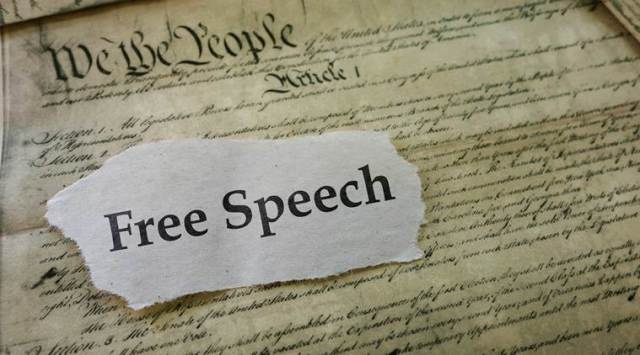
This week, the Supreme Court of India has set aside a Delhi High Court order that directed the Wikimedia Foundation to take down content hosted on Wikipedia. This decision reasserts the boundaries of judicial intervention in matters of speech. The judgment in Wikipedia Foundation Inc. v. ANI Media Pvt Ltd & Ors (2025) goes far beyond a simple resolution of an internet defamation dispute; it speaks to the core of constitutional protections under Article 19(1)(a), and firmly reminds the judiciary that it is not a censor.
The genesis of the litigation was a defamation suit filed by ANI against Wikipedia, following the publication of an entry on the platform that linked the news agency to misleading reporting and alleged political bias. The Delhi High Court, upon being apprised of online discussions hosted on Wikipedia that criticised the single judge’s order and commented on the ongoing proceedings, directed Wikimedia to delete the relevant pages within 36 hours. It viewed the content as a prima facie violation of the sub judice principle and amounting to interference in the administration of justice.
The Court held that content removal orders must satisfy the twin tests of necessity and proportionality principles drawn from its well-established jurisprudence. Citing its Constitution Bench ruling in Sahara India Real Estate Corporation Ltd v SEBI (2012), the SC reiterated that only where there is a real and substantial risk to the fairness of trial or to the proper administration of justice can any form of restriction be contemplated. Mere displeasure at criticism, or the fact that judicial proceedings are under public scrutiny, does not qualify.
It is in this context that the Court examined the nine-judge bench judgment in Naresh Shridhar Mirajkar v State of Maharashtra (1966), a decision that remains the bedrock of the open-court principle in Indian constitutional law. The Court emphasised that courts, being public and open institutions, must remain open to public observation, debate, and criticism even when a matter is sub judice.
This observation is a principled reaffirmation of a constitutional culture that favours openness over opacity. The Court reminded itself, and by extension all constitutional actors, that robust public debate, including criticism of court proceedings, is not an aberration but a democratic necessity.
The Court avoided any attempt to classify Wikipedia’s content as scandalous or malicious. Instead, it placed the burden on the judiciary to demonstrate, with specificity and reasoning, why particular content needs to be removed. Blanket takedown orders, especially in the absence of a clear and imminent threat to justice or public order, are constitutionally untenable. The Court emphasised that such orders, if at all issued, must adhere to the constitutional discipline of being necessary and proportionate.
In constitutional terms, this means that for a court to justify any content restriction, it must first establish that the content in question clearly violates one of the reasonable restrictions under Article 19(2), such as public order, defamation, or contempt of court. The harm alleged must be serious and imminent, and not addressable through less restrictive means. Even where the court does decide that removal is essential, it must ensure that the restriction is narrowly tailored to the content in question, reasoned in its justification, and limited in duration. These safeguards are not abstract; they are the minimum constitutional thresholds required to protect free speech and expression.
SC’s emphasis on constitutional safeguards in the case also aligns with its judgment in Bloomberg Television v Zee Entertainment (2024), where it reiterated the classic three-fold test for granting interim injunctions: A prima facie case, balance of convenience, and irreparable harm. The Court cautioned that interim orders that curtail journalistic expression must demonstrate why such restraint is necessary, and courts must avoid turning these standards into mere incantations. In reiterating these principles, the SC drew from past jurisprudence in Reliance Petrochemicals Ltd v Indian Express Newspapers (1988), where it held that a preventive injunction against the press can only be granted when there is a present and imminent danger to the administration of justice.
One of the more subtle but critical aspects of the ruling is its recognition of the digital architecture of modern speech. The Wikimedia Foundation argued that it merely provides the technical infrastructure for content hosted and edited by users and volunteers, and does not exercise editorial control. While the Court declined to rule on the intermediary status of Wikipedia in this case, given the pending suit, it implicitly recognised that platforms cannot be held directly responsible for all user-generated content unless there is active involvement. This distinction will be essential in future cases where online intermediaries are targeted for third-party speech.
The judgment also makes an important institutional point about the role of the judiciary itself. Courts must avoid the temptation to become arbiters of truth in the marketplace of ideas. Where harm is alleged, legal remedies must be pursued through defamation law or contempt proceedings, not through content control orders masquerading as protective reliefs.
In conclusion, the Wikipedia v ANI decision is not merely a win for one online platform, it draws a line in the sand. The Supreme Court has reminded lower courts and litigants alike that judicial power must be exercised with restraint, especially in matters concerning speech.
The writer is a legal researcher specialising in constitutional law, based in Delhi